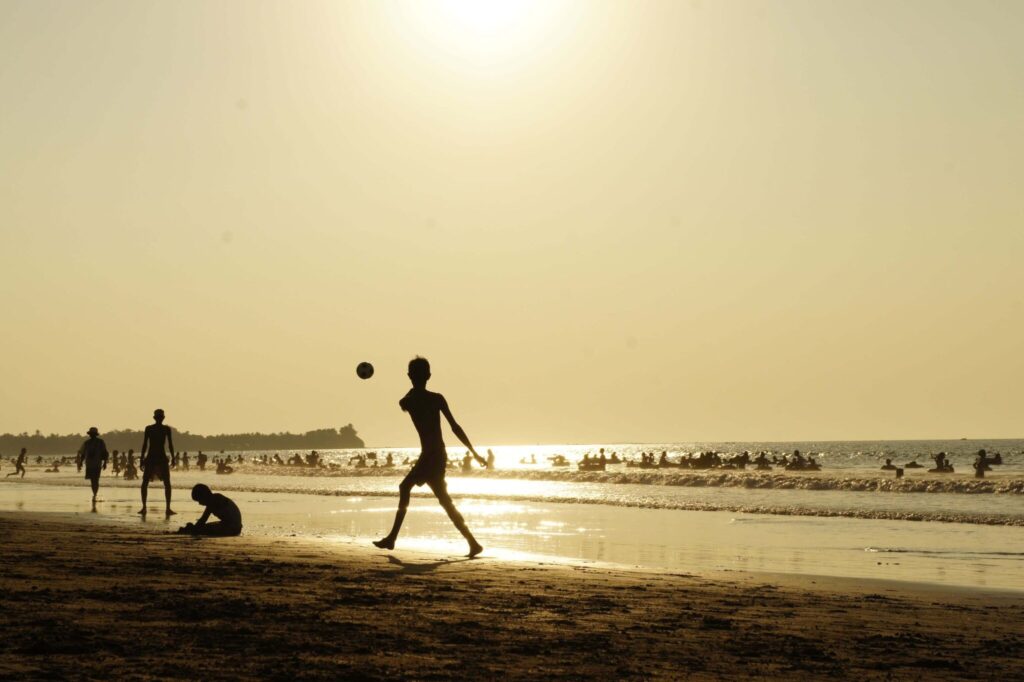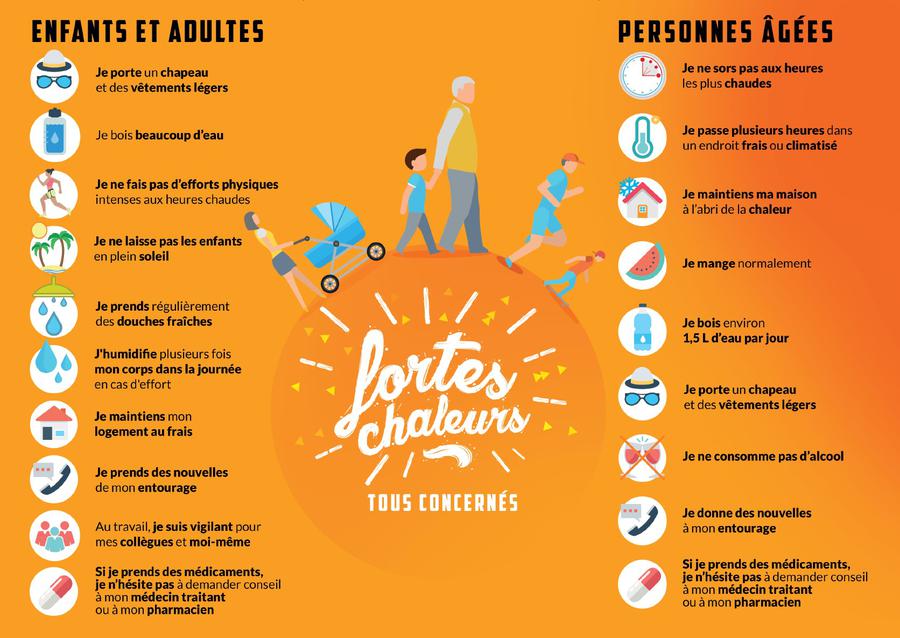Practical guide : Staying safe during a heatwave in Monaco

As the Côte d’Azur is hit by another heatwave, with temperatures over 30 °C this week, the Monaco Government has issued a reminder about the importance of taking the right protective measures. A few simple actions can avoid issues while high temperatures persist.
Heatwaves are hard to cope with for everyone. Poorly handled, they can soon become dangerous. The Monegasque Ministry of Health and Social Affairs has drawn up a comprehensive protocol to help you ‘weather’ heatwaves with peace of mind.
Certain sections of the population need to be particularly careful during hot spells. Infants and small children, whose temperature regulation mechanisms are still immature, are at the forefront of those most at risk. Just ahead of regnant women and people over 65, who naturally feel less thirsty.
People with chronic conditions such as diabetes, a weak heart or respiratory problems should be extra careful. But don’t be lulled into a sense of false security: even adults in perfect health, seasoned sportspeople or workers who are used to being outdoors, can fall victim to the heat if they don’t take preventive measures.
Best everyday practices

Regular hydration is the most fundamental protection against the harmful effects of heatwaves. Drink preferably still water at room temperature frequently, even if you don’t feel thirsty. Avoid alcohol, coffee and sugary drinks, which paradoxically promote dehydration.
Simple measures at home play a crucial role in keeping the temperature bearable. Close the blinds and curtains when the sun is out, ventilate only at night and early in the morning, and create air flow between rooms. Fans or air conditioning can help maintain a comfortable temperature.
Being smart about going out is essential during heatwaves. Completely avoid going outside between 12 noon and 7pm, keep physical activities until the cooler hours of the morning before 10am or the evening after 8pm, and aim for air-conditioned areas if you must move around. One golden rule: never leave anyone alone in a vehicle, even for a very short time, as the temperature in the vehicle can soar by 10°C in just a few minutes.
Exposure to ultraviolet rays requires a different approach depending on the day’s UV index. For a moderate to high index (3-7), a minimum SPF 30 sun cream is sufficient, reapplying every two hours. Protective clothing is recommended.
For very high UV index levels (8-10), SPF 50+ sun cream becomes essential, along with long-sleeved clothing, a wide-brimmed hat and CE-certified category 3 sunglasses. In the event of an extreme UV index (11+), all direct exposure should be avoided shelter in the shade or indoors, and continue to apply SPF 50+ cream even in shaded areas.
Make sure to regularly check the expiry date of your sun cream and apply it twenty minutes before exposure to the sun for optimum effectiveness.
Recognising and reacting to warning signs
The symptoms of heatstroke in adults include intense headaches, nausea accompanied by dizziness, confusion and sometimes incoherent speech, alternating hot and dry or clammy skin, and a noticeable rise in body temperature.
For these symptoms, the emergency protocol is to immediately place the person in the shade or in a cool place, remove any excess clothing, apply cool water to the skin, make the person drink in small sips if they are still conscious and immediately call the emergency services (112).
Keep a special eye on children
Younger children present with specific symptoms that require extra vigilance: sudden fever, unusual pallor, abnormal sleepiness or restlessness, intense thirst accompanied by weight loss, and refusal to eat. The protocol for children requires the child to be taken to the coolest room in the home, given something to drink immediately and regularly, and given a lukewarm bath (one to two degrees below body temperature). Loss of consciousness, refusal to drink or a temperature over 40°C are life-threatening emergencies, call 112 immediately.
With age comes a natural decline in the feeling of thirst, which dramatically increases the risk of dehydration. A handy calculation can be used to adjust hydration: we should drink 0.5 litres of extra water for every degree above normal body temperature. Monaco’s Gerontological Coordination Centre provides personalised support for residents over the age of 60 who live alone, by calling +377 98 98 42 03.
Protecting our four-legged friends
Pets can also struggle during a heatwave. Make sure they have shade and cool water at all times, avoid walking on hot tarmac, never leave them alone in the car, even with the windows open, and keep physical exercise to the coolest hours. Excessive panting, very red lips, a wobbly gait or vomiting should prompt an immediate consultation with a vet.

Useful contacts
- Medical emergencies: 112 (Fire Service)
- Elderly people living alone: Centre de Coordination Gérontologique +377 98 98 42 03
- Veterinary advice: consult your usual vet
Heatwaves can be managed. If the whole family follows the advice above, you’ll all have a safe summer.











